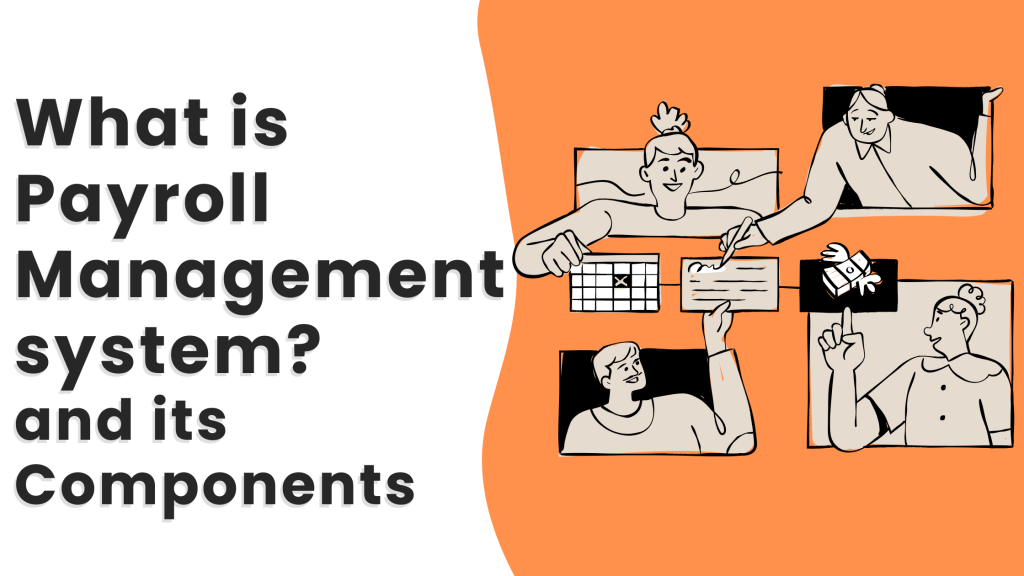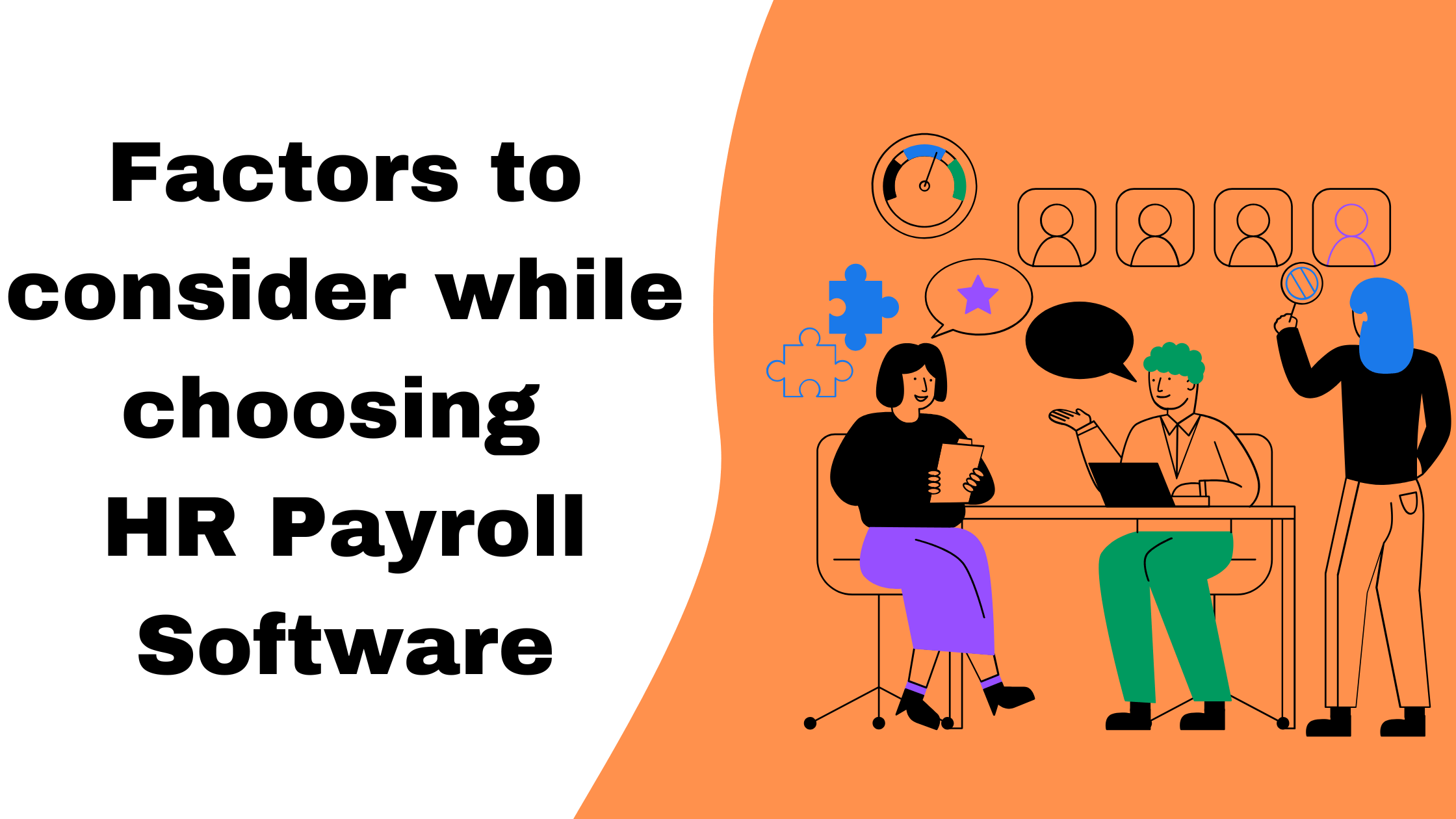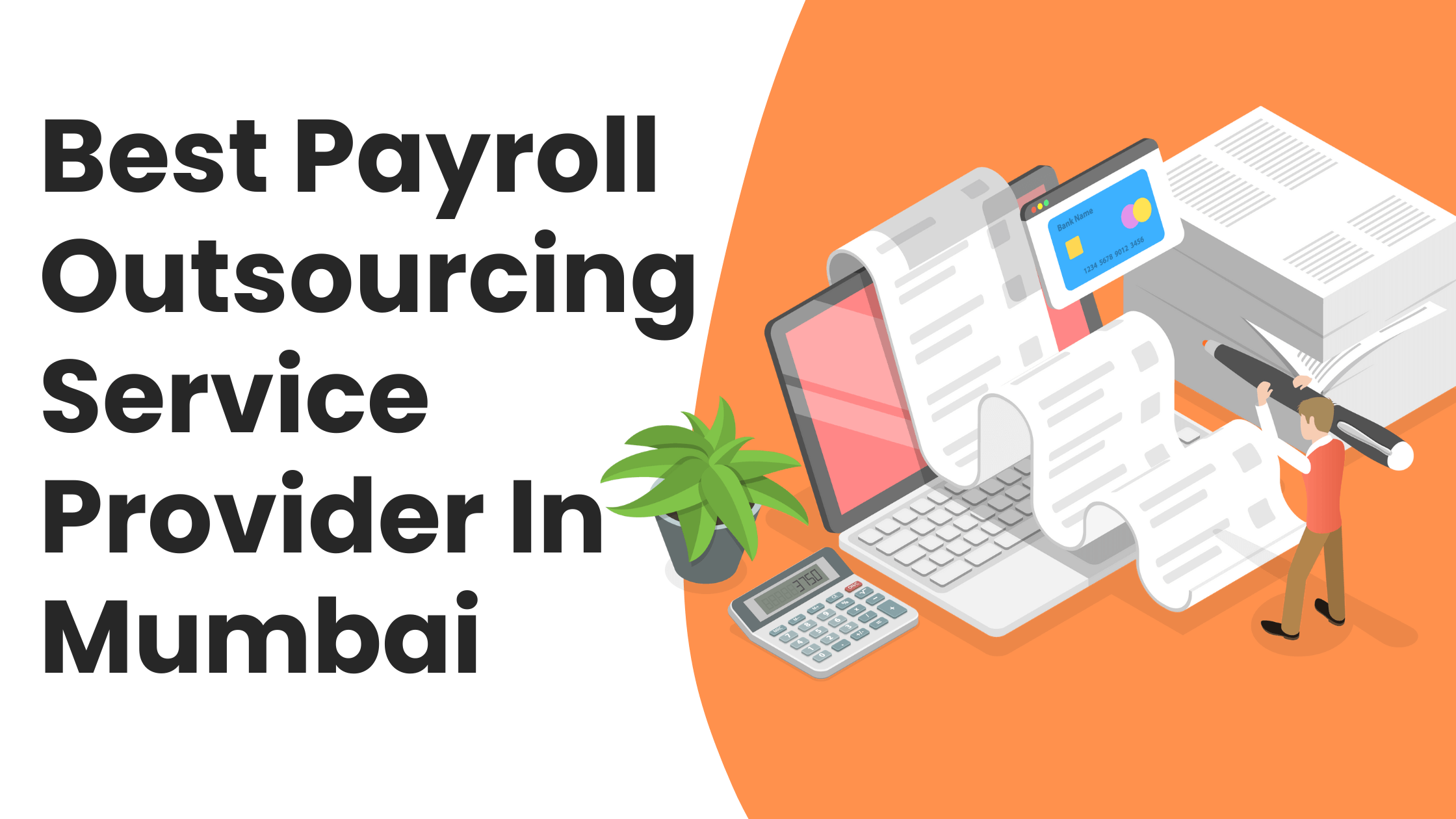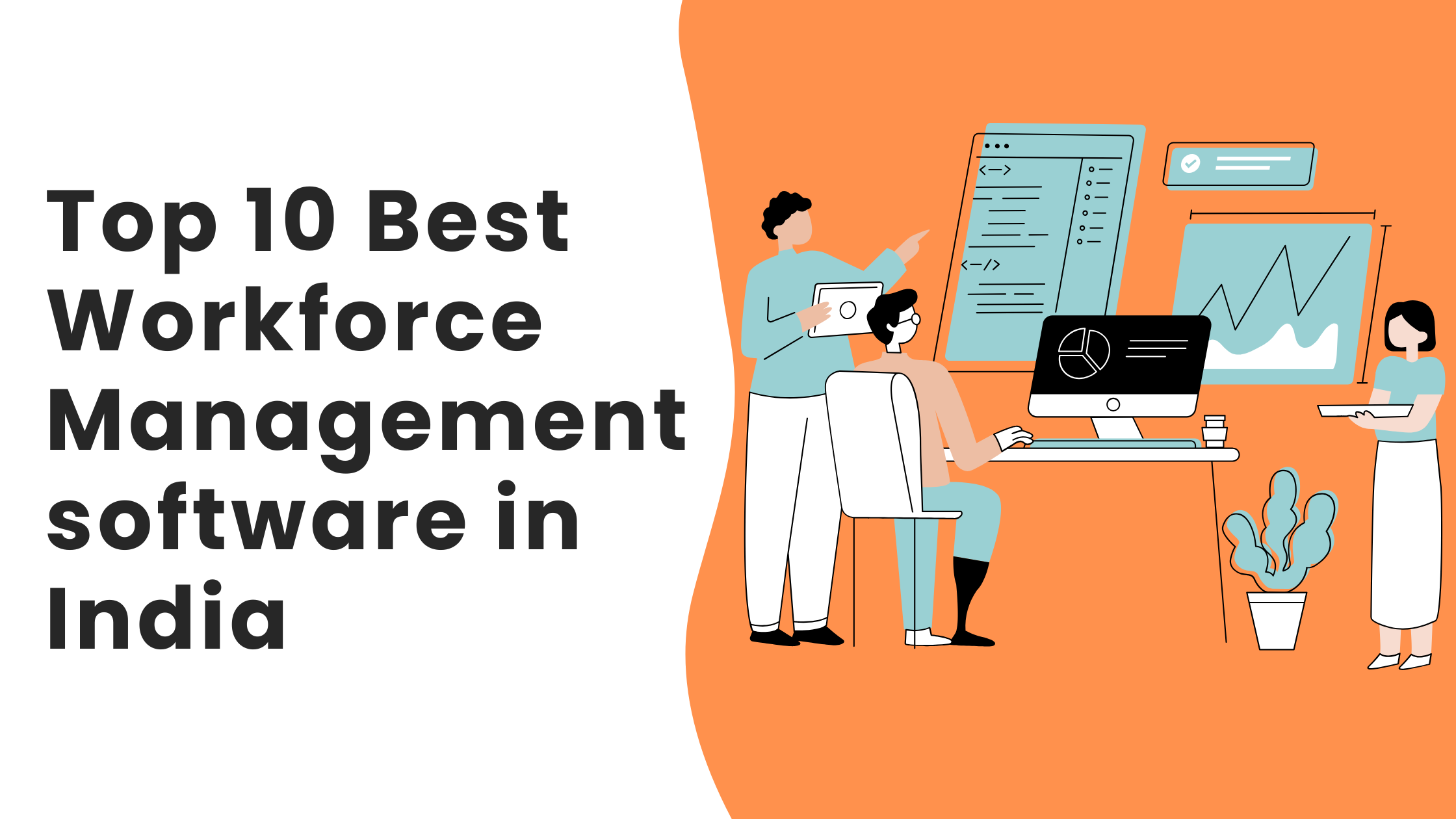What is Payroll Management system? and its components

Payroll Management software is a specialized digital solution designed to automate and streamline the entire payroll process for businesses, ensuring accurate and timely payment of employee salaries while managing taxes and deductions efficiently.
This software simplifies tasks such as calculating gross and net pay based on hours worked, salary structures, bonuses, and deductions, including income tax, Provident Fund (PF), and Employee State Insurance (ESI). It ensures compliance with labor laws and tax regulations, automatically updating to reflect changes in statutory requirements, and reducing the risk of legal penalties.
Payroll software often integrates with attendance and leave management systems to accurately account for absences, overtime, and approved leaves, making salary disbursement more precise.
In this blog, we will explore the components, functionalities, importance, and types of payroll management systems, as well as how these systems contribute to organizational efficiency and employee satisfaction.
Components of Payroll Management System
A robust Payroll Management System integrates several key components, ensuring that every aspect of employee compensation is covered. The main components are mentioned below:
1) Employee Information Database
This component serves as a repository of all employee-related information, such as name, contact details, employment status, department, salary structure, and more. It stores both personal and professional data to facilitate payroll processing and other HR functions.
2) Salary and Wage Calculations
Salary calculations are at the core of any payroll system. The PMS uses predefined salary structures, which include basic pay, allowances (such as housing, travel, etc.), bonuses, and overtime to calculate the total salary for each employee.
3) Taxation and Compliance
Payroll management systems ensure compliance with local and national labor laws, as well as tax regulations. The system calculates tax deductions based on government rules and employee-specific information like tax declarations and exemptions.
4) Time and Attendance Management
Many payroll systems integrate with attendance management systems, allowing automatic calculation of wages based on hours worked. This is especially useful in industries where employees work in shifts or log hours, such as in manufacturing or services sectors.
5) Leave Management
The payroll system tracks and manages leave taken by employees (sick leave, vacation, etc.), ensuring that salary deductions or leave encashment is handled appropriately.
6) Expense Reimbursements
Employees often incur expenses on behalf of the company, such as travel or business-related costs. Payroll management systems allow companies to track these expenses and reimburse employees as part of the salary cycle.
7) Statutory Deductions and Contributions
The system handles statutory deductions such as provident fund, insurance, and pension contributions, along with ensuring that these deductions are made in compliance with relevant laws and are deposited to the correct authorities.
8) Payslip Generation
One of the most visible aspects of the payroll system is payslip generation. It generates detailed pay statements for employees, outlining all components of their salary, deductions, and net take-home pay.
Functions of Payroll Management System
A Payroll Management System simplifies the payroll process in many ways:
1) Automation of Payroll Processes
Manual payroll processes can be time-consuming and prone to error. By automating payroll activities, a PMS saves time, reduces errors, and ensures timely salary payments. The system automatically calculates salary based on employee attendance, time worked, and applicable bonuses or deductions.
2) Compliance Management
Taxation laws, labor laws, and statutory compliance requirements differ from country to country, and they may change over time. A payroll system ensures compliance by updating tax codes, integrating new labor laws, and handling deductions such as income tax, health insurance, and pension contributions.
3) Data Security
Payroll data includes sensitive employee information such as bank account details, salary, and tax details. A good PMS provides robust data security mechanisms to protect this information from unauthorized access.
4) Accurate Record Keeping
Maintaining accurate payroll records is essential for both audit purposes and financial reporting. Payroll systems automatically generate and store payroll reports, which are needed for legal and tax filing purposes.
5) Employee Self-Service Portal
Many payroll systems offer a self-service portal where employees can access their payslips, tax deductions, leave balances, and other personal data. This reduces the burden on HR teams by allowing employees to access payroll-related information independently.
6) Integration with Accounting Systems
A good payroll system integrates seamlessly with other financial systems, such as accounting software, ensuring that payroll expenses are automatically recorded in the company’s financial ledgers.
Importance of Payroll Management Systems
An efficient payroll system offers several benefits to an organization:
1) Accuracy and Timeliness
The primary goal of any payroll system is to ensure employees are paid correctly and on time. Accurate payroll processing fosters trust between the organization and its employees, while delays or errors can damage employee morale.
2) Cost and Time Efficiency
Automating payroll processes helps save significant time and money. By eliminating manual calculations, the organization reduces the risk of human error, minimizing the likelihood of payroll disputes or compliance issues. Automation also frees up HR and finance professionals to focus on more strategic tasks.
3) Legal Compliance
A payroll system ensures the organization remains compliant with all relevant tax, labor, and employment laws. Non-compliance can lead to hefty penalties and even legal consequences. By keeping track of changing laws and ensuring deductions and contributions are made correctly, PMS helps avoid these risks.
4) Improved Employee Satisfaction
A reliable payroll system contributes to employee satisfaction by ensuring they receive their pay accurately and on time. Employees also appreciate transparency regarding their salary structure and deductions, which a PMS provides via detailed payslips.
5) Reduced Administrative Burden
Payroll can be a complex and labor-intensive process, especially in large organizations. A payroll system automates many of these tasks, reducing the administrative burden on HR teams and allowing them to focus on more strategic functions like talent management and employee engagement.
Types of Payroll Management Systems
There are several types of payroll management systems available, each catering to different organizational needs:
1) In-House Payroll Systems
In-house payroll systems are managed by the organization itself, typically through on-premise software or manual processes. This is more common in smaller organizations with fewer employees or organizations that prefer complete control over the payroll process.
2) Cloud-Based Payroll Systems
Cloud-based payroll systems are increasingly popular due to their flexibility, scalability, and ease of use. These systems are hosted on the cloud, allowing HR and accounting teams to access payroll data from anywhere with an internet connection. Cloud-based systems also allow for real-time updates and integration with other cloud-based applications like ERP or accounting software.
3) Outsourced Payroll Services
Outsourcing payroll to a third-party service provider is an option for companies that prefer not to handle payroll in-house. These providers manage the entire payroll process, including compliance, tax filings, and employee payments. This option is particularly useful for small businesses or companies without a dedicated HR team.
4) Hybrid Payroll Systems
A hybrid payroll system combines in-house and outsourced services. For example, an organization may manage certain payroll functions in-house (such as employee attendance tracking) while outsourcing tax filing and compliance to a third party.
Quikchex: The Best Payroll Management System in India
In the Indian market, Quikchex has emerged as one of the top payroll management systems, offering a comprehensive suite of services that cater to the specific needs of businesses in the country. The platform has been designed to simplify payroll, compliance, and human resource management, making it an ideal choice for organizations of all sizes. Here’s why Quikchex stands out as the best payroll management system in India:
1. Seamless Payroll Automation
Quikchex excels in automating the entire payroll process. From calculating employee salaries to generating payslips, the system ensures that every payroll-related task is executed without errors. It handles the complexities of salary structures, allowances, deductions, bonuses, and overtime calculations, ensuring employees are paid accurately and on time.
Key Features:
Customizable Salary Structures: Quikchex allows businesses to design unique salary structures for different employee groups, enabling precise salary disbursement.
Tax Calculations: The system ensures that income tax is calculated based on the latest tax laws in India, with real-time updates for tax slabs and exemptions.
2. Compliance with Indian Regulations
One of Quikchex’s standout features is its ability to manage statutory compliance, a critical aspect of payroll management in India. The system ensures that organizations adhere to the country’s complex labor laws, tax regulations, and statutory contributions such as Provident Fund (PF), Employee State Insurance (ESI), Professional Tax (PT), and Income Tax (TDS).
Compliance Features:
Automated PF, ESI, and PT Filings: Quikchex automatically calculates the necessary statutory deductions and ensures timely filing, minimizing the risk of penalties for non-compliance.
TDS Management: Quikchex simplifies the complex process of calculating and filing TDS returns, with easy integration into accounting systems for reporting and auditing purposes.
3. Integrated Time and Attendance Management
Quikchex offers a robust time and attendance management feature that integrates seamlessly with its payroll system. By linking attendance records to payroll, the system ensures that employees are compensated based on their actual work hours, leave balances and overtime.
Benefits:
Biometric and Cloud Attendance Integration: Quikchex can integrate with biometric devices, cloud-based attendance systems, or mobile apps, allowing for real-time tracking of employee attendance.
Automatic Leave Calculations: The system automatically deducts salaries for unapproved leaves or processes leave encashment, making attendance management hassle-free.
4. Employee Self-Service Portal
Quikchex offers a highly efficient Employee Self-Service (ESS) portal, giving employees direct access to their payroll-related information. This self-service functionality improves employee experience and reduces HR workload, as employees can independently manage their personal data, tax declarations, leave requests, and payslip downloads.
Features of the ESS Portal:
Access to Payslips and Tax Information: Employees can access current and historical payslips, view detailed salary breakdowns, and track tax deductions.
Leave and Attendance Management: Employees can submit leave requests and check their attendance history, making the entire process transparent and efficient.
5. Scalability and Flexibility
Quikchex is designed to grow with the organization. Whether you are a small business or a large enterprise, Quikchex provides a scalable solution that meets the needs of businesses across various industries. Its flexible pricing plans, customization options, and modular services make it an excellent choice for businesses of all sizes.
Scalable Features:
Customizable Solutions: Quikchex can be tailored to specific business needs, whether it’s for handling payroll for a few employees or thousands.
Flexible Pricing: The platform offers flexible pricing models based on the number of employees and services required, making it cost-effective for small and medium-sized enterprises (SMEs) as well as large corporations.
6. Data Security and Confidentiality
With sensitive employee data such as salary details, tax information, and bank account numbers being processed, data security is paramount. Quikchex provides robust security measures to protect payroll data from unauthorized access or breaches.
Security Features:
End-to-End Encryption: Quikchex encrypts all sensitive data, ensuring that information is securely stored and transmitted.
Role-Based Access Control: The system allows for role-based access, so only authorized personnel can access specific payroll information.
7. Excellent Customer Support
Quikchex is renowned for its exceptional customer support, offering both technical and compliance assistance. Indian organizations often struggle with navigating the complexities of labor laws and tax regulations, but Quikchex’s team of experts provides ongoing support to ensure that companies remain compliant and that payroll operations run smoothly.
Support Services:
Dedicated Support Team: Quikchex provides a dedicated customer support team to help clients resolve any payroll or compliance issues.
Compliance Updates: The platform automatically updates clients on any changes in labor laws, tax regulations, or statutory requirements, ensuring that organizations remain compliant at all times.
8. Cost Efficiency
For Indian businesses looking for an affordable yet powerful payroll solution, Quikchex offers great value for money. By automating payroll and reducing the need for manual interventions, Quikchex helps businesses save time, minimize errors, and reduce the costs associated with payroll processing.
Cost-Effective Benefits:
Reduced Administrative Costs: The automation of payroll processes eliminates the need for large payroll teams, cutting down on administrative expenses.
Lower Compliance Costs: Quikchex ensures timely compliance, avoiding costly penalties or fines that may arise from non-compliance with tax and labor regulations.
9. Advanced Reporting and Analytics
Quikchex offers a comprehensive reporting system, allowing organizations to generate detailed payroll reports, analyze trends, and gain insights into employee compensation. These reports are valuable for audits, financial planning, and making informed decisions regarding HR policies.
Reporting Features:
Customizable Reports: Quikchex allows businesses to generate customizable reports based on different parameters such as department, salary components, and tax deductions.
Analytics Dashboard: The platform provides an analytics dashboard that displays key metrics such as total payroll expenses, attendance trends, and compliance status, helping management make data-driven decisions.
10. Quikchex for Remote and Distributed Workforces
In today’s work environment, with more companies adopting remote and hybrid work models, Quikchex has evolved to cater to the needs of a distributed workforce. The system’s cloud-based architecture allows employees and HR teams to access payroll data and manage HR functions from anywhere.
Features for Remote Workforces:
Cloud-Based Accessibility: Since Quikchex is cloud-based, it allows HR teams to manage payroll from any location, making it ideal for remote teams.
Mobile-Friendly Interface: Employees can access their payroll information, submit tax declarations, or request leaves from their smartphones, enhancing convenience.
Conclusion: Why Quikchex is the Best Payroll Management System in India
Quikchex is the ideal payroll management solution for businesses in India, offering a comprehensive, flexible, and compliant system. Its ability to handle complex salary structures, statutory compliance, and employee self-service functionalities makes it stand out from its competitors.
Whether you are a small business or a large enterprise, Quikchex provides an efficient, scalable, and secure payroll solution tailored to the Indian market, ensuring that organizations can manage their payroll processes smoothly while remaining compliant with the country’s ever-evolving regulations.
FAQs
1. What is Quikchex, and how does it help with payroll management?
Quikchex is a cloud-based payroll management system that automates salary calculations, tax deductions, statutory compliance, and employee record-keeping. It streamlines payroll processes by ensuring accurate, timely payments while keeping the organization compliant with Indian labor laws. Additionally, Quikchex offers an employee self-service portal and integrates with time and attendance systems, making it a complete HR solution.
2. How does Quikchex handle statutory compliance in India?
Quikchex ensures full statutory compliance by automating calculations for Employee Provident Fund (EPF), Employee State Insurance (ESI), Professional Tax (PT), and Tax Deducted at Source (TDS). The system is regularly updated with the latest government regulations and provides automatic filing of returns to ensure compliance with Indian labor laws and tax regulations.
3. Can Quikchex manage payroll for small businesses and startups?
Yes, Quikchex is designed to be flexible and scalable, making it suitable for small businesses, startups, and large enterprises alike. It offers pricing plans that cater to businesses of different sizes, allowing smaller organizations to access advanced payroll features without high upfront costs. The system can easily scale as your business grows.
4. Does Quikchex offer integration with attendance and leave management systems?
Yes, Quikchex integrates seamlessly with attendance management systems, including biometric and cloud-based solutions. It automatically syncs attendance data with payroll, ensuring accurate salary disbursement based on hours worked, overtime, and leave balances. It also offers leave management features, enabling employees to apply for leave and track leave balances through the self-service portal.
5. How secure is my data on Quikchex?
Quikchex takes data security very seriously. The platform uses end-to-end encryption to safeguard sensitive employee and payroll information. Additionally, it provides role-based access control, ensuring that only authorized personnel have access to confidential data. All data is stored securely in the cloud, with regular backups and compliance with global data protection standards.



